Our favourite places to stay on this sleepy Cebu island.
11 European Countries Where Filipinos Can Live and Work Using Digital Nomad Visa
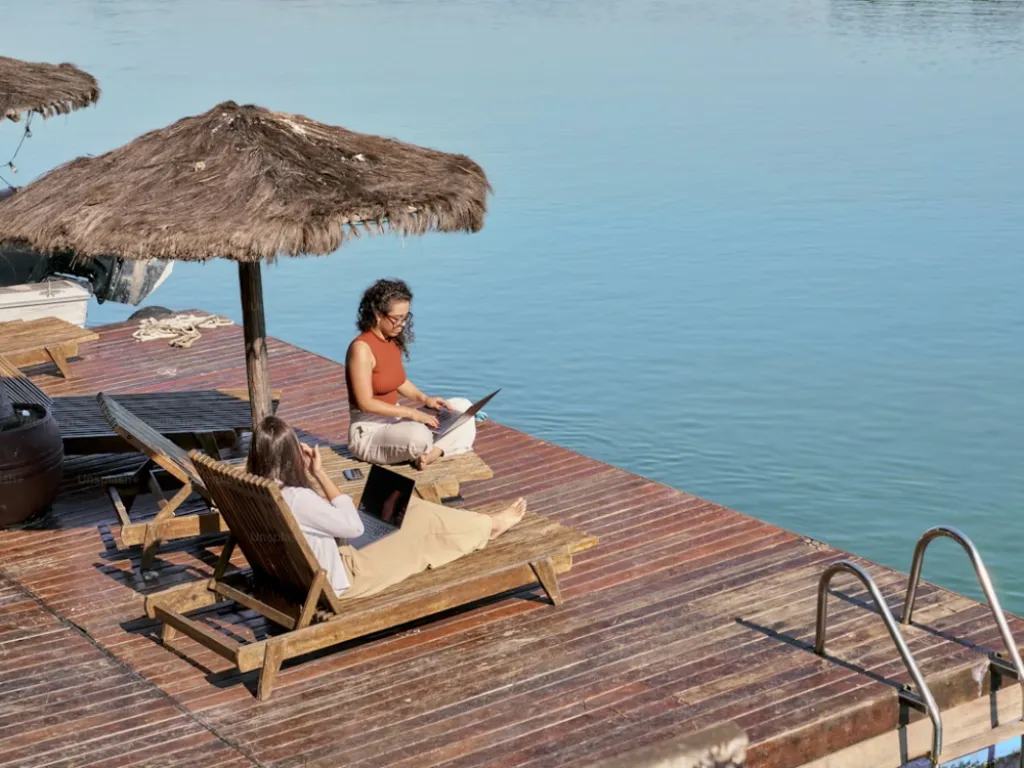
Filipino freelancers and remote workers can now live and work legally in Europe!
With digital nomad visas, working outside of the country is now made possible. These visas let you stay for months or years while keeping your online job. Countries like Italy, Spain, Portugal, and Greece offer permits for remote work, giving you a chance to explore Europe while earning.
If you have been dreaming of a European adventure without quitting your job, now is the time to start planning! Imagine working from a café in Santorini, sending reports with the Alps as your view, or coding from a sunny beach in Cyprus. These digital nomad visas are basically special permits that let you live and work legally in another country while keeping your job in the Philippines.
What is a Digital Nomad Visa?
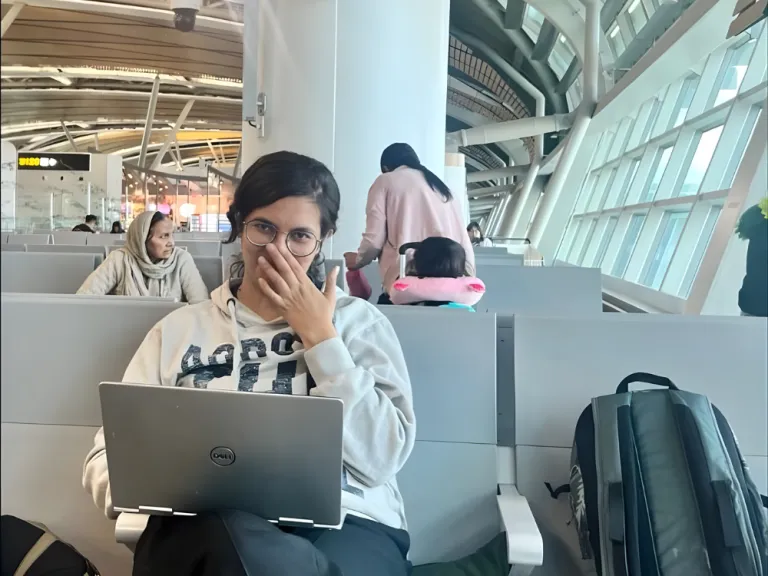
Image credit: aanchalandharshal | Instagram
A digital nomad visa is a type of visa for people who work online. It lets you stay in a country for months or years while working legally. Most countries ask for proof that you earn enough money to live there. Some countries may ask you to pay taxes if you stay long, while others give tax breaks to attract remote workers. For Filipino freelancers, this visa can be a simple way to live in Europe and work at the same time.
Also read: Philippines Welcomes Remote Workers with New Digital Nomad Visa
Here are some of the European countries you can visit using your Digital Nomad Visa.
1. Albania
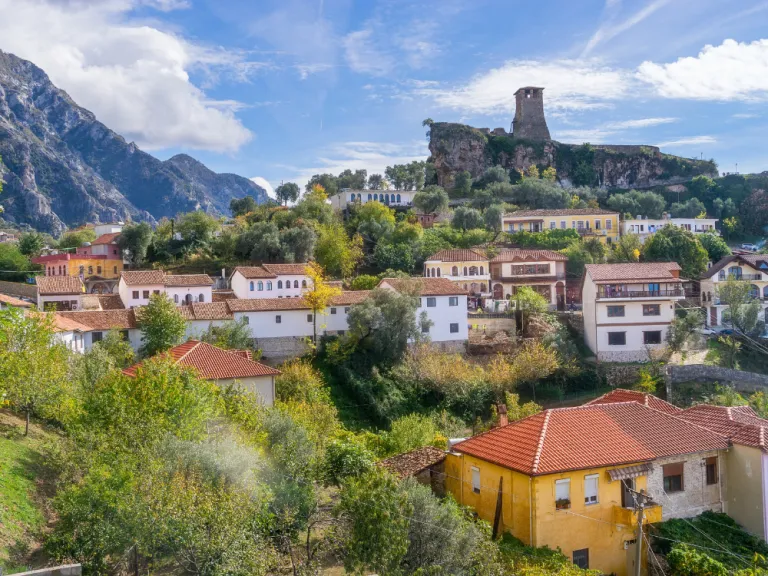
Image credit: Canva Pro
Albania offers the Unique Permit, a long-term visa that lets Filipino freelancers stay from one to five years. You need to show you can earn enough money to live there. Experts suggest earning around USD 9,800 per year, which is about PHP 576,000. You can apply through the official government website. Albania is a good option for those who want a long stay in Europe on a budget.
2. Croatia
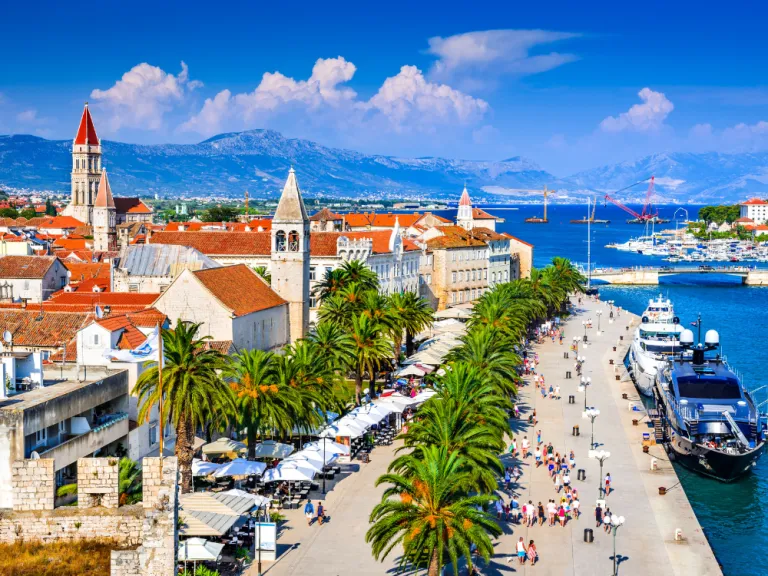
Image credit: Canva Pro
In Croatia, Filipino remote workers can get a Temporary Stay visa to live and work for up to 12 months. You need health insurance, proof of a job outside Croatia, and enough money to support yourself. This means earning 2,870 EUR per month (around PHP 181,700) or having 34,440 EUR (P2.1 million) in savings. Croatia is perfect for freelancers who want to enjoy seaside towns and a friendly digital nomad community. Apply at digitalnomadscroatia.mup.hr.
Also read: I Travelled 2 Days in Croatia & Here’s What I Love About It
3. Cyprus
 Image credit: Canva Pro
Image credit: Canva Pro
Cyprus offers a one-year temporary residence permit for remote workers. You can renew it for up to two years. To qualify, you must work for a company outside Cyprus or offer services to clients abroad. You also need a net monthly income of at least 3,500 EUR (PHP 221,600). Cyprus is great if you want a relaxed lifestyle with beautiful beaches while still working.
4. Estonia
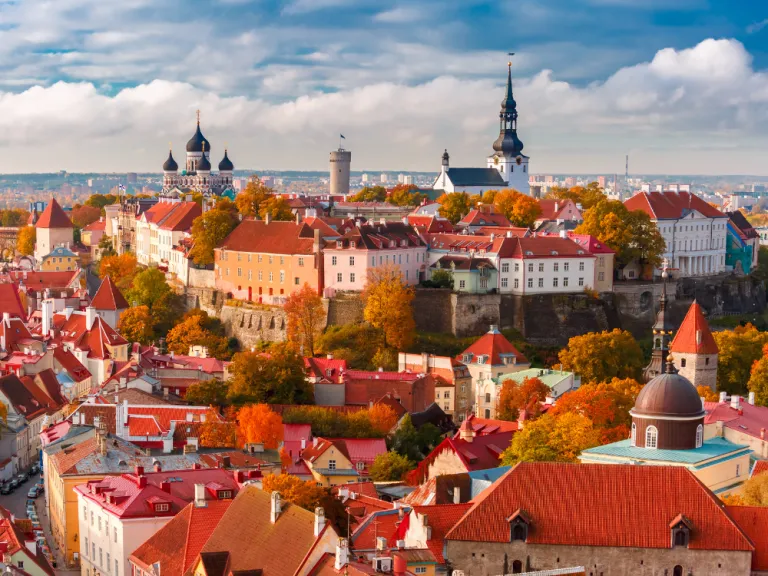
Image credit: Canva Pro
Estonia is popular among remote workers. Filipino freelancers can stay for up to one year if they have a contract with a company outside Estonia or freelance for clients abroad. You need to earn at least 4,500 EUR gross (PHP 284,600) in the six months before applying. Estonia has a strong digital system and quiet, historic towns, making it ideal for focused work and exploration.
5. Greece
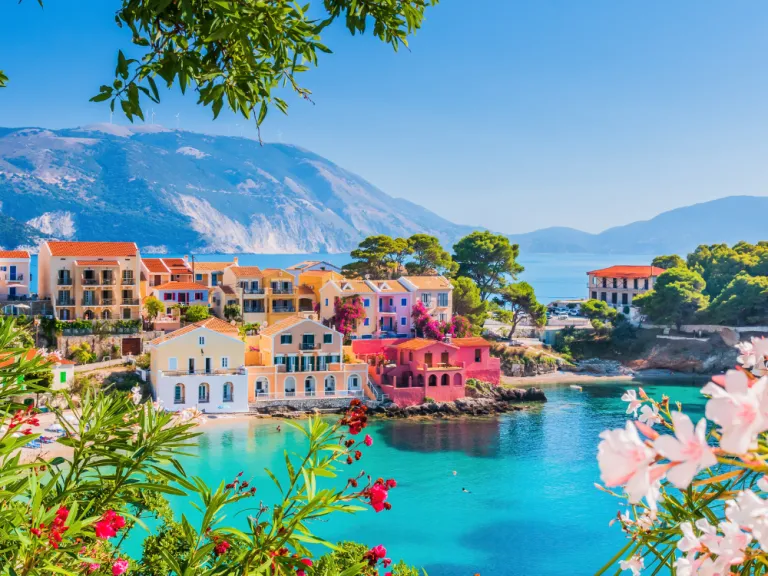
Image credit: Canva Pro
Greece is more than sunsets in Santorini. Filipino remote workers can get a visa for one year, and it can be extended up to four years. To qualify, you must work for a company outside Greece or be self-employed. The minimum income is 3,500 EUR per month (PHP 221,200), and it goes up if you have a spouse or children. Greece is perfect for freelancers who want culture, history, and amazing sea views while working.
Also read: My 5-Day Santorini Travel Guide: Tips, Itinerary & Cost Breakdown
6. Hungary
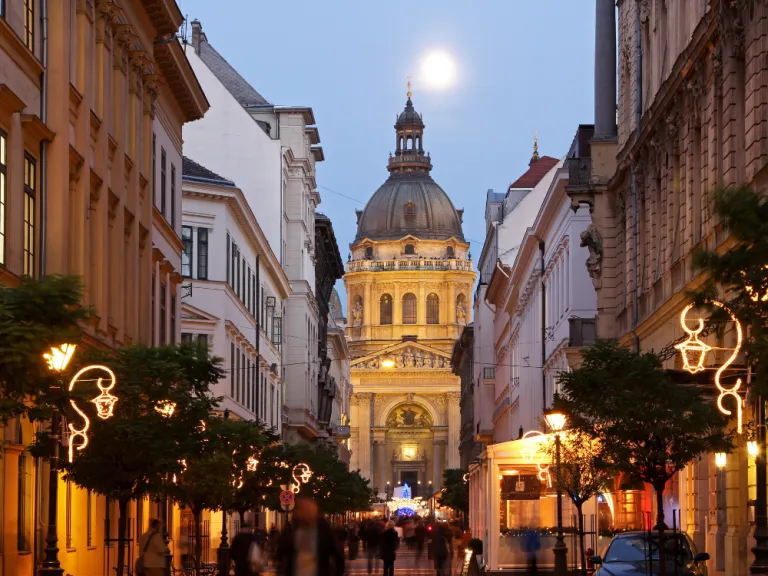
Image credit: Canva Pro
Hungary offers the White Card for remote workers. It lets you live and work for one year, which can be extended for another year. To qualify, you need proof of employment abroad or your own business, at least 3,000 EUR net (PHP 189,800) for six months, health insurance, accommodation, and a return ticket. Budapest is ideal for freelancers because of its history, coffee culture, and fast internet.
7. Italy
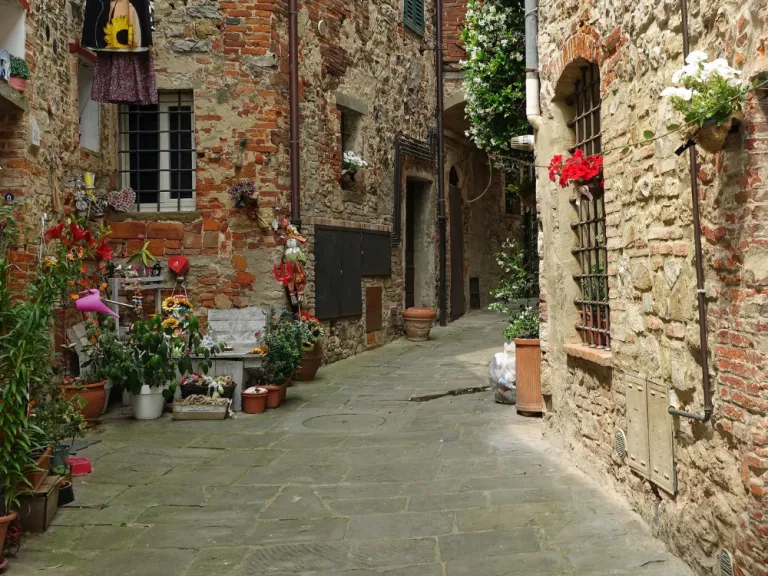
Image credit: Canva Pro
Italy recently launched a visa for digital nomads. Non-EU nationals can stay for one year. You need at least six months of remote work experience and must be highly skilled. This usually means having a university degree or five years of professional experience. You also need a work contract with a company outside Italy or proof of self-employment and an income of 28,000 EUR per year (PHP 1.7 million). Health insurance, accommodation, and no criminal record are required. Italy is perfect for working from cities like Venice, Florence, or Rome.
Also read: Italy Is Opening Its Doors: 500,000 Work Visas Available Over the Next Three Years
8. Malta
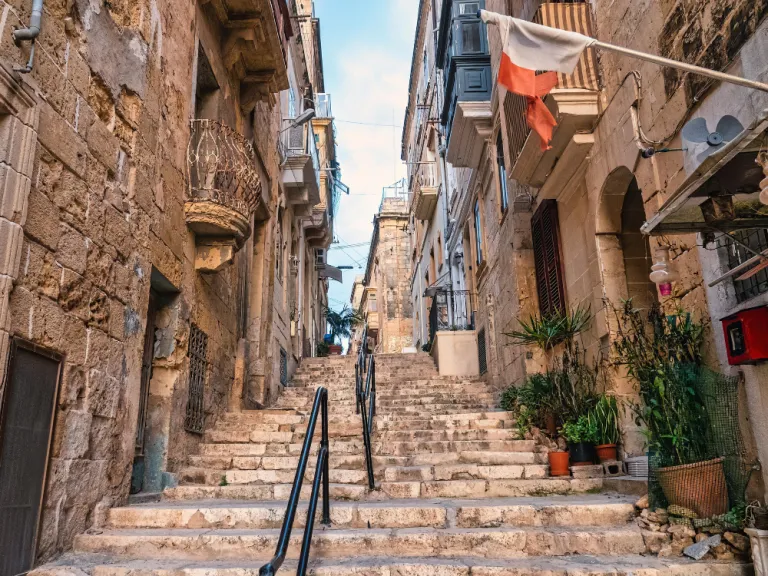
Image credit: Canva Pro
Malta offers a long-term visa for digital nomads valid for one year. You can renew it up to four years. To qualify, you need to work for a company outside Malta or offer freelance services abroad. Minimum income is 42,000 EUR per year (PHP 2.6 million), plus health insurance and proof of where you will live. Malta is a small country with sunny weather, historic towns, and a relaxed lifestyle.
9. Portugal
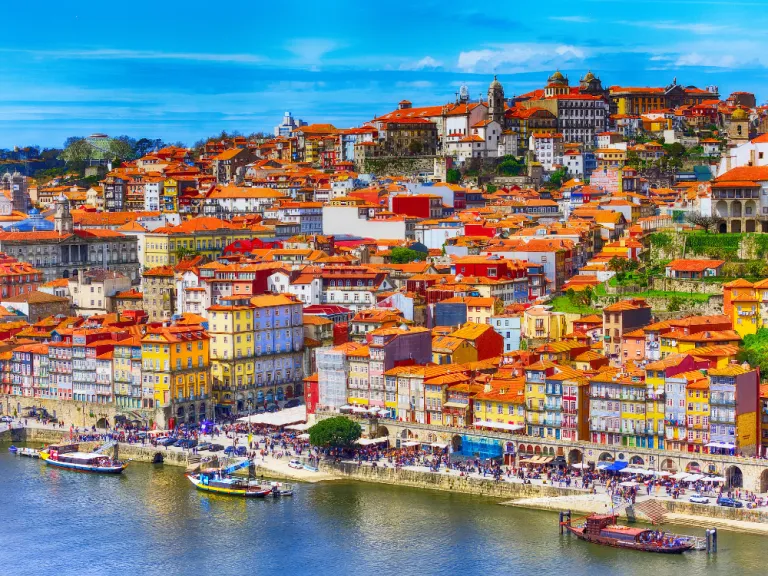
Image credit: Canva Pro
Portugal launched its digital nomad visa in 2022. Filipino freelancers can stay for 12 months with possible extensions. Requirements include a contract or freelance work for a company outside Portugal, a monthly income of 2,800 EUR (PHP 176,500), and proof of accommodation. Lisbon, Porto, and Algarve offer beaches, cafés, and city life, making it a great place for remote work.
10. Romania
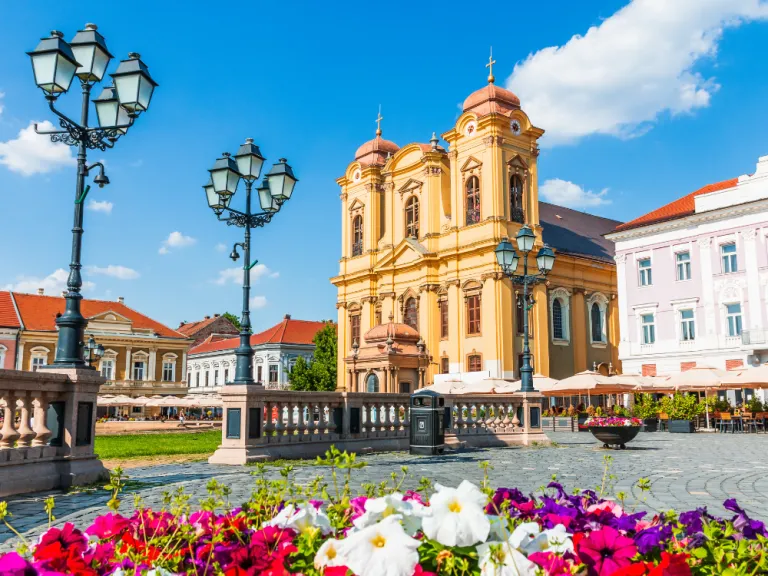
Image credit: Canva Pro
Romania offers a one-year digital nomad visa for Filipino freelancers working for foreign companies or clients. You must earn at least three times the average salary in Romania for the six months before applying. No criminal record is needed. Romania is ideal for those who want castles, scenic towns, and fast internet while working remotely.
11. Spain
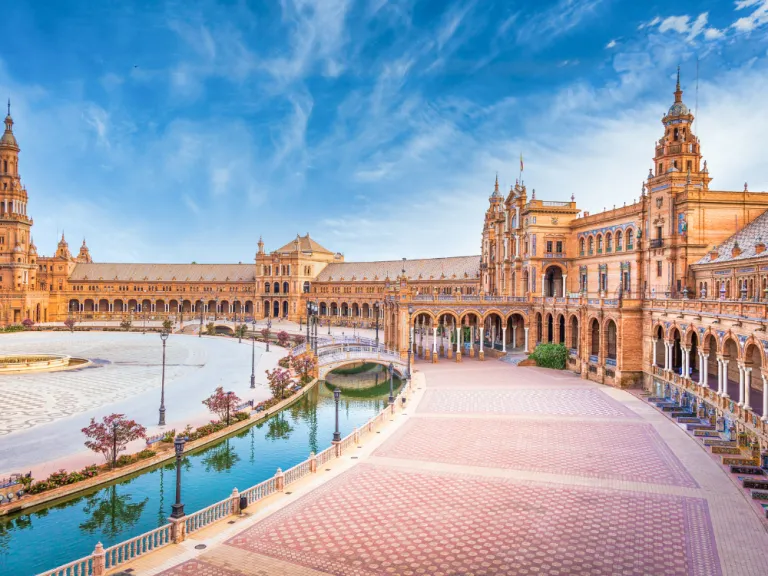
Image credit: Canva Pro
Spain is perfect for Filipino freelancers because of its historical ties. You can stay for up to 12 months. You need a certificate of employment for at least three months with a foreign company or freelance work abroad. Minimum income is 2,200 EUR (PHP 138,500) for the worker and extra amounts for dependents. You must also have a degree or three years of work experience, health insurance, and a clean criminal record. Barcelona and Seville are great cities to work from while exploring.
Also read: When In Barcelona: My Itinerary and Easy DIY Travel Guide
Why Filipino Freelancers should try this

Image credit: Canva Pro
Europe is no longer only for tourists. With digital nomad visas, Filipino remote workers can live in beautiful cities, explore culture, and still earn money. Whether it is budget-friendly Albania or artsy Italy, there is a European city for every type of freelancer.
Filipinos should check embassy websites, prepare their documents, and start planning. Your next office could be a café by the sea, a rooftop in Lisbon, or a cosy flat in Budapest. Europe is waiting for you, and this time, it is open for work.
So, if you’re a remote worker bored of doing your job at home or at your local cafes, you might want to pack your bags and start working at a cafe… in Europe for a change!
Featured image credit: mollythecat | Unsplash
Published at
About Author
Wynona Purl
Subscribe our Newsletter
Get our weekly tips and travel news!
Recommended Articles
10 Bantayan Island Resorts, Hotels, and Rentals for Your Tropical Escape 10 Best Mountain Cafes in the Philippines for Your Peak Coffee Experience Coffee date on the mountains, anyone?
10 Best Things to Do in Los Angeles Los Angeles is more than Hollywood stars. From hikes with killer views to beaches straight out of a rom-com, here are 10 must-do LA experiences for Filipino travellers or any wanderers in general!
10 Cutest Cafes in Japan That Are Totally One of a Kind From Pikachu snacks to Totoro cream puffs, here are 10 themed cafes in Japan that prove café hopping should be part of your travel itinerary.
10-day Christmas and New Year Japan Trip: Complete Travel Itinerary Celebrate Christmas and New Year in Japan with this 10-day holiday vacation itinerary packed with Tokyo lights, Kyoto charm, and Osaka adventures.
Latest Articles
MRT-7 Partially opens 6 New Stations From Caloocan to QC DOTr eyes partial operations for 6 stations between Sacred Heart and Tandang Sora
Philippine Airlines to Move Siargao and Coron Flights to Clark International Airport Philippine Airlines is moving key island flights out of NAIA this March.
PAL Now Allows Small Dogs on All Domestic Flights in the Philippines Flying with your dog
Places to Visit Based on Feng Shui According to Your Birth Month Travel aligned with energy
Filipino Migrants Face Potential Australia Ban Under New Proposal Australia considers a ban on migrants from 13 countries including the Philippines

